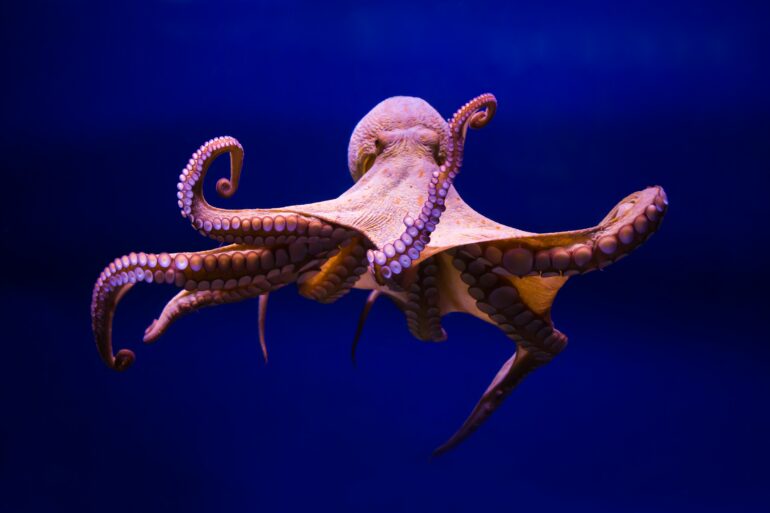
Curious Kids is a series for children of all ages. If you have a question you’d like an expert to answer, send it to [email protected].
What does an octopus eat? – Lily, age 4, Maryland
The octopus is one of the coolest animals in the sea.
For starters, they are invertebrates. That means they don’t have backbones like humans, lions, turtles and birds.
That may sound unusual, but actually, nearly all animals on Earth are invertebrates – about 97%.
Octopuses are a specific type of invertebrate called cephalopods. The name means “head-feet” because the arms of cephalopods surround their heads. Other types of cephalopods include squid, nautiloids and cuttlefish.
An exciting nature documentary about squids and octopuses.
What do they eat?
As marine ecologists, we conduct research on how ocean animals interact with each other and their environments. We’ve mostly studied fish, from lionfish to sharks, but we have to confess we remain captivated by octopuses.
What octopuses eat depends on what species they are and where they live. Their prey includes gastropods, like snails and sea slugs; bivalves, like clams and mussels; crustaceans, like lobsters and crabs; and fish.
To catch their food, octopuses use lots of strategies and tricks. Some octopuses wrap their arms – not tentacles – around prey to pull them close. Some use their hard beak to drill into the shells of clams. All octopuses are venomous; they inject toxins into their prey to overpower and kill them.
Watch an octopus catch prey – and spray ink.
Where do they live?
There are about 300 species of octopus, and they’re found in every ocean in the world, even in the frigid waters around Antarctica. A special substance in their blood helps those cold-water species get oxygen. It also turns their blood blue.
You can find octopuses at different depths too. Some are found on warm tropical reefs just a few feet below the surface of the water. Others live deep in the sea, practically in the dark. The species that goes deepest is the dumbo octopus, spotted at 22,800 feet down – that’s more than 4 miles (almost 7 kilometers).
How smart are they?
Octopuses are at the head of the class. They are among the smartest invertebrates on Earth. They have nine brains – one mini-brain in each arm and another in the center of their bodies. Each arm can independently taste, touch and perform basic movements, but all arms can also work together when prompted by the central brain.
Octopuses put their brains to good use. They can solve mazes and puzzles, particularly when food is the reward. Sometimes they even outsmart people: At the New Zealand National Aquarium, Inky figured out how to sneak out of his tank and escape to the ocean through a drainpipe. …
